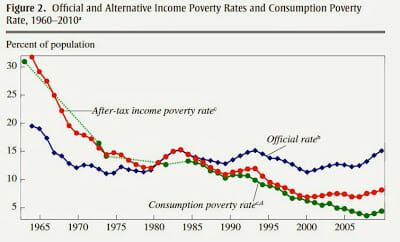Simply Corrupt
The US Justice Department is using decades-old anti-discrimination law to stop poor black families from escaping crappy schools via a school choice program. The awesome Clint Bolick of Goldwater has the details:
Despite reports of compromise or capitulation, the U.S. Justice Department is continuing its legal assault on the Louisiana school-voucher program—wielding a 40-year-old court order against racial discrimination to stymie the aspirations of black parents to get their children the best education.
The Louisiana Scholarship Program began in 2012. It provides full-tuition scholarships to children from families with incomes below 250% of the poverty level, whose children were assigned to public schools rated C, D or F by the state, or who were enrolling in kindergarten. In the current year, 12,000 children applied for scholarships and nearly 5,000 are using them to attend private schools. Roughly 90% are used by black children.
Parental satisfaction is off the charts. A 2013 survey by the Louisiana chapter of the Black Alliance for Educational Options, a national school-choice organization, found that 93.6% of scholarship families are pleased with their children's academic progress and 99.3% believe the schools are safe—a far cry from the dismal public schools to which the children were previously consigned.
But last August, the Justice Department filed a motion to enjoin the program in dozens of school districts that still have desegregation orders from generations ago. It claimed that any change in racial composition would violate the orders. After a tremendous public backlash, Justice withdrew its motion for an injunction, insisting it did not intend to remove kids from the program....
In fact, the children are very much in danger of losing their opportunities. The Justice Department is demanding detailed annual information, including the racial composition of the public schools the voucher students are leaving and the private and parochial schools the students are selecting. If it objects to the award of individual vouchers based on those statistics, the department will challenge them.
If I had to make a list of the top 10 things we could do to actually help African-American families (as opposed to the garbage programs in place now to supposedly help them), #1 would be decriminalization of narcotics and in general stopping the incarceration of black youth for non-violent victim-less offenses. But #2 would be school choice programs like the one in Louisiana.
PS- I am thinking about what the rest of the top 10 list would be. #3 would likely be putting real teeth in police department accountability programs, as I think that police departments tend to be the last bastions of true institutionalized racial discrimination. #4 might be some sort of starter wage program that gives a lower minimum wage for long-term unemployed. If I weren't a pacifist and committed to free speech and association, I might say #5 was shutting down half the supposed advocacy groups that claim to be working for the benefit of African-Americans but instead merely lock them into dependency.
